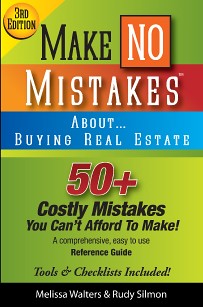Pro’s and Con’s of New Construction vs. Resale

New construction may not be an option in the area where you want to live, but if it’s any consolation, we are not big proponents of new construction. Why? Resale values on established homes, in established neighborhoods, are already established! You can check the resale sales history of your home or others in the neighborhood. If your neighbor doesn’t cut his lawn, more than likely that is not going to change too much – unless they sell to someone who will. Though neighborhoods can change, there is enough information you could gather from the internet, a neighborhood newsletter, by driving around and from a nearby police station. Let’s not forget about the nosy neighbors who can give you great insight as to the ins and outs of a neighborhood. You could attend a homeowners’ association meeting to hear the homeowners’ issues and complaints. Another good website to check is www.familywatchdog.us, which will let you know if there are sexual offenders in or around the neighborhood.
New construction is like investing in a business you don’t know much about. Let’s begin by dispelling some of the myths. The first and foremost myth is: new does not mean ‘no problems.’ Any home built by man has the potential to have problems. Also, new construction can quickly deplete much of your cash. Items such as blinds, gutters, sod in the backyard, and a refrigerator are a few items which may not necessarily come with your new home. A home that’s not newly-built will probably have most of these items already, and you can live with them until you are financially able to upgrade. These days, builders are making efforts to become more competitive with resales (i.e., homes already built) by offering very creative incentives to buyers. Many items are negotiable.
The other downside to new construction is buying too soon into a subdivision. Builders sometimes reduce the prices of their homes partway through the sales process, which means the early buyers ended up paying more than others did. Then again, if the neighborhood turns out to be a success you may have made a great decision. The risk is up to you.
New construction, as with anything else, just requires buyers to do their research. Understanding how builders work is crucial to making a wise purchase. We have seen buyers who, in the beginning, say they don’t want the cost of their homes to go past a certain limit. Yet time and again, after dealing with the builder or the design center, buyers walk out tens of thousands dollars over budget because they chose expensive upgrades.
Also, beware of many builders who change their names frequently or who have reputations that are not always first-rate. The best way to learn more about a builder is to ask your real estate agent to get a list of referrals of homes the builder constructed in the past. Call these homeowners and ask questions about their business dealings with the builder. Or find other real estate agents who have sold the builder’s property while representing the buyers. These agents will be happy to share their buyers’ experience, both before and after the buyers moved in. You can easily find these real estate agents by searching the MLS historical records. Focus your questions around quality, service and warranty issues. To find a list of the questions to ask go to www.MakeNoMistakes.com or contact Melissa Walters for a "Good" Realtor Referral.


